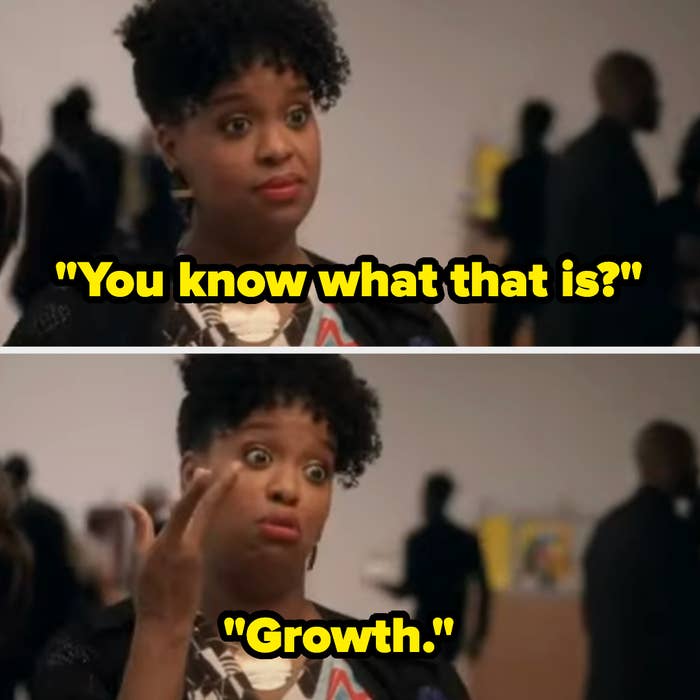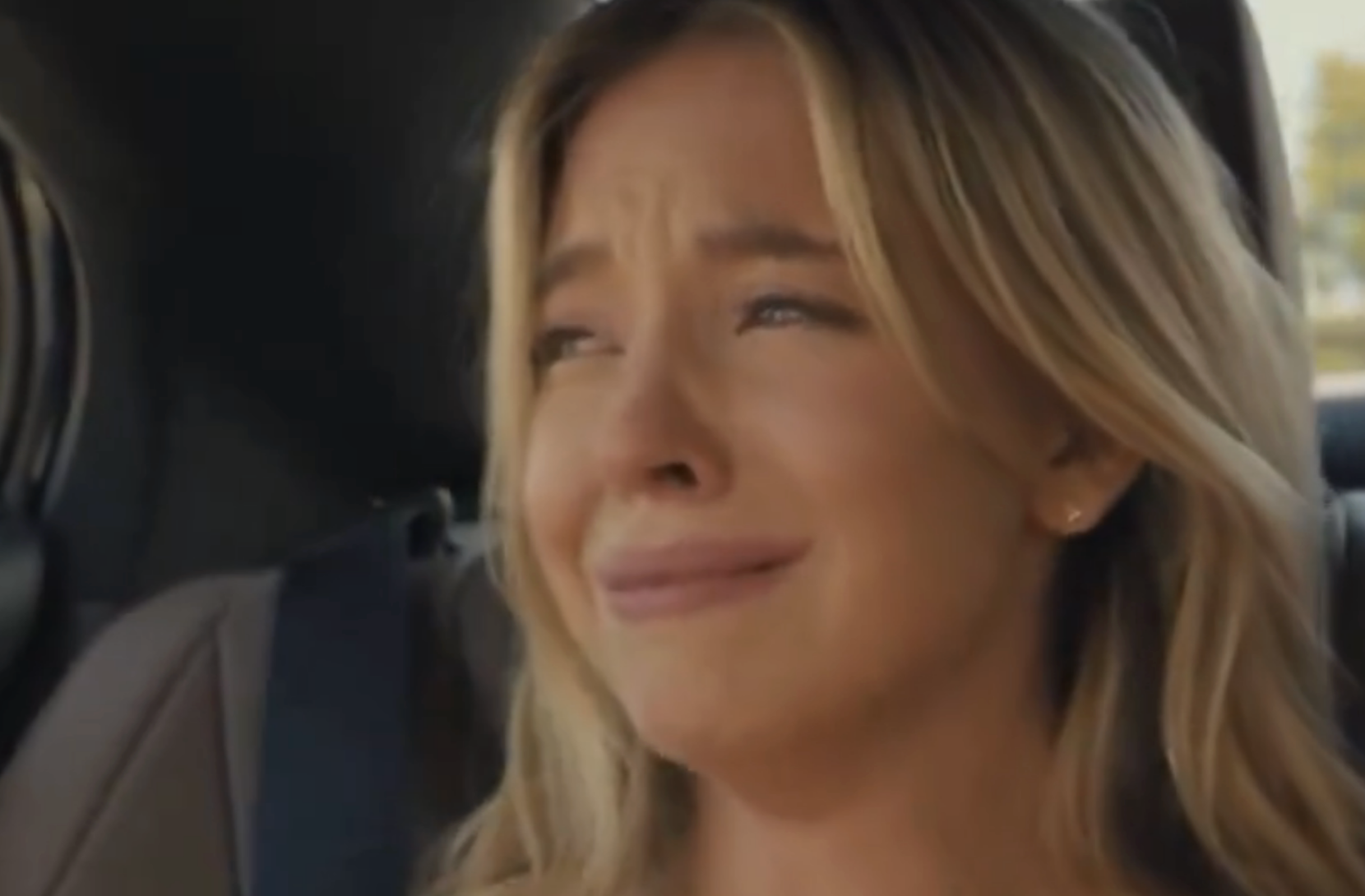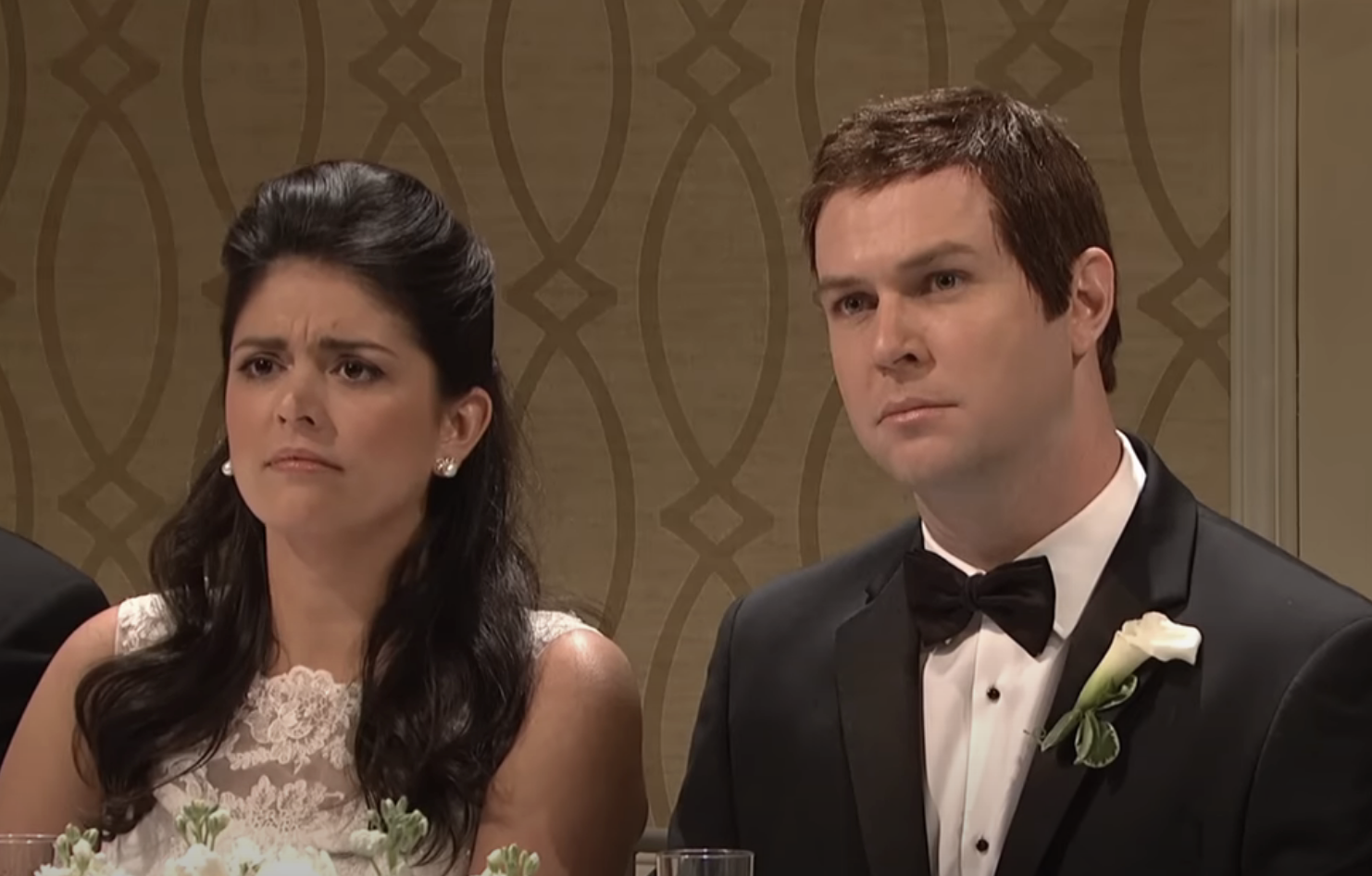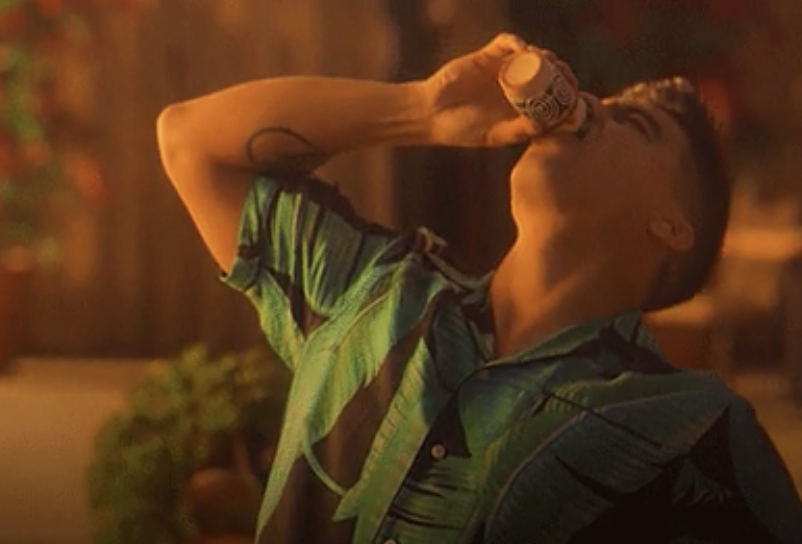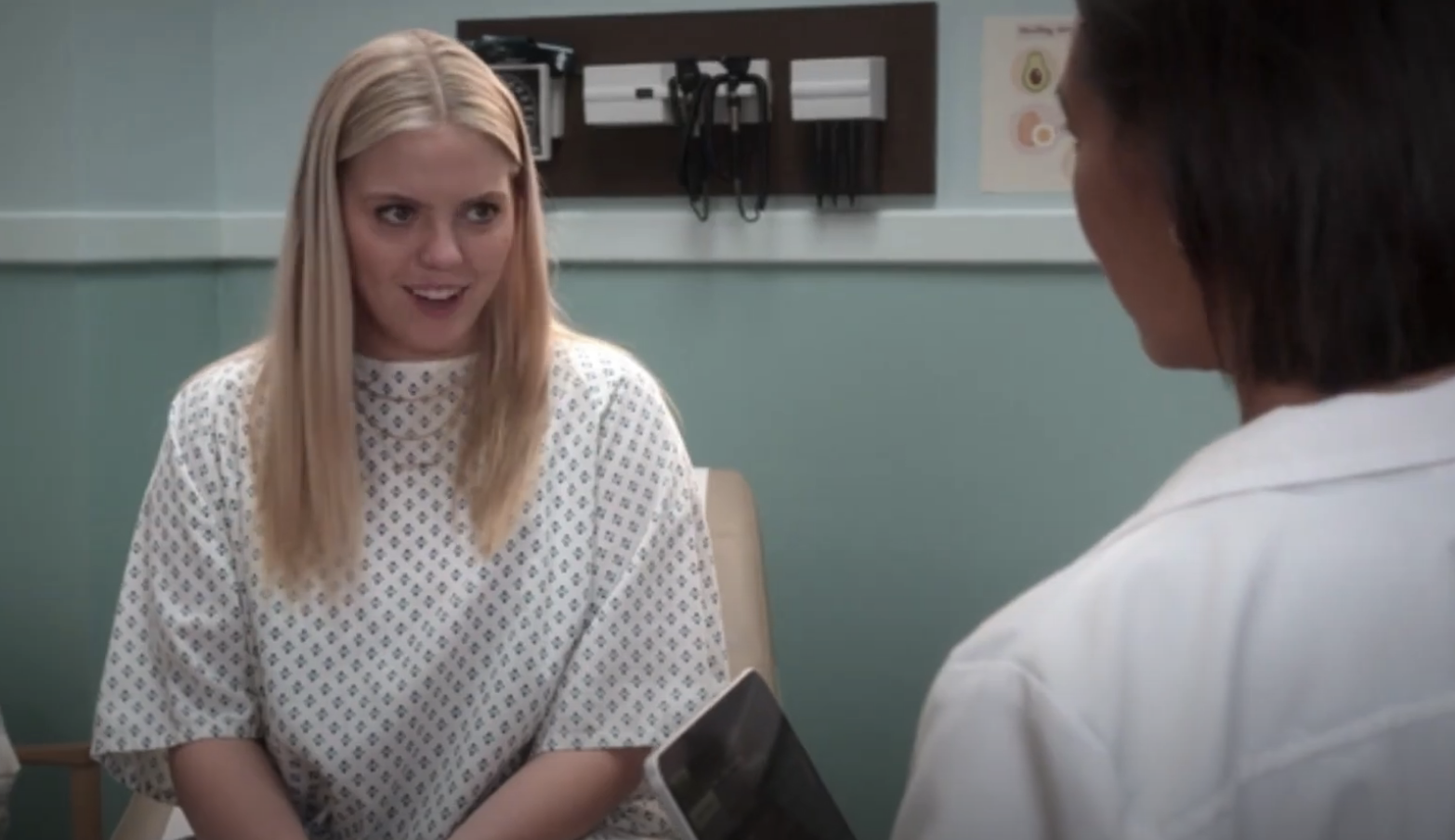" The best agency I can describe it is it used to sense like my mind was a razz sea . Then , one Clarence Shepard Day Jr. , it settled into a serene and passive pool . "
According tomental health specialists, the human brain’s frontal lobe is not fully mature until we reach the age of 25, which explains the impulsive decisions many make in their teens that, looking back, are incredibly cringey.
I recentlyaskedadults 25 and up in theBuzzFeed Communityto share how they changed after their frontal lobe fully developed. Here are their most fascinating responses:
1.“I used to cry all the time whenever I felt even a little bit emotional. Got upset at work? Cried. Felt a little too much in the middle of a Target? Sobbed. I always felt it coming on and would think to myself, ‘Oh God, not again,’ but I couldn’t control it and felt convinced I never would. Then, when I turned 25, myemotionsregulated and became more manageable, kind of like magic.”
2.“I realized around 25 that I’d never been taught it’s ok to say no to doing favors for people! I’m talking about the little day-to-day stuff like ‘While you’re out, can you run to the store for me?’ or ‘Can you work late tonight and cover for XYZ?’ I’d been taught that if someone needed help with something, the answer was ‘sure!’ It didn’t matter if you already had plans, if it was inconvenient for you, or if every cell in your body was screaming that you just really didn’t want to.”
" I spend my early twenty twisting myself into nautical mile to help out everyone around me . The minute I started go down levelheaded boundaries , I aver half my day - to - daylight strain just meld away . “—emilym4e8497a33
3.“I had a lot of (frankly, unearned) professional confidence in my early 20s that served me surprisingly well. A ‘fake it ‘till you make it’ mentality without fully realizing just how much you’re faking it. I’ve lost most of that because I’m now all too aware of how much could go wrong if I take the wrong gamble. I wish I had the confidence at work I had when I was 23.”
— lobster_lemon_lime
4.“I started holding myself accountable when I turned 25. In my early 20s, I really struggled with my emotions; I lashed out, I shut down, and I ran away from problems. Because of this, I hurt both myself and my loved ones and made decisions that had me frozen in this period of time between childhood and adulthood.”
" I went to therapy and took it gravely for the first time . I start out processing my feelings before pay off others involved , picked and chose my engagement , and coiffe boundary with others and myself . In the five year since , I have been closelipped to both of my parent , have a great group of friends , arrest married , and had my daughter . I am so much more stable in life , and I would never go back to the serious whiplash that my late teens / former 20s were . "
— Anonymous
5.“I went back to school a year ago at age 25 for a career change and felt a massive shift in how I carry myself this time versus earlier in adulthood. I didn’t realize how much of my early university experience was defined by people who just didn’t care — people who didn’t show up, people who constantly complained and did nothing about their issues, people who made everything harder and more stressful for everyone.”
" I finger like such a boomer when I say this , but it ’s barbarian how unprofessional some of these people were and how good-for-nothing I feel for the professors who had to look at with this . This time , I ’ve surrounded myself with people who put in the body of work and see results , who agitate me to be a better someone and overall give a diddlyshit about what they ’re doing . I have near whiplash from the change in experience just by being surrounded by the veracious the great unwashed . “—Anonymous
6.“I felt the change. My fiancé and family picked on me when I would joke about feeling my frontal lobe developing, but I meant it. I felt like I started seeing things clearer. I started recognizing things about family members that I wish I had not, like how immature they were regarding decisions they’ve made.”
" My relationship with my nanna ( who for all of my life has been mybest champion ) bug out to decline because I started to disagree with some of her actions . It ’s demented , and I miss being mingy with her . peradventure I just commute . “—Anonymous
7.“That being alone is okay. I absolutely love being home alone, and I get angry when my alone time is not respected. If you would’ve told me this at 20, I wouldn’t have believed it. I loved having an entourage around, and now I realize I HATE being in group settings and need time to digress from the stress of being social. Also, having one-on-one time with one friend or at MAX two is better than hanging in a group. Trust me.”
8.“I got engaged at 24 and called it off at 25. I am happy for brain development and the end of a relationship that I didn’t deserve. If you’re reading this under 25, wait to commit to anything life-changing until you’re a little older.”
9.“I was a spoiled child when I was younger. As I entered my mid-20s, I became more patient and kind. I stopped throwing tantrums when things didn’t go my way and started being kinder to others.”
— RM
10.“The best way I can describe it is it used to feel like my mind was a raging ocean. Then, one day, it settled into a calm and peaceful pond. Everything that used to feel like theend of the worldno longer bother me. I love the peace it has brought me in every aspect of my life.”
11.“I’d had parents and other adults say how important it was to have good credit, build up savings, plan for retirement, and completely ignored all of it. After realizing I was closer to 30 than 20, it was very much as though a switch had flipped. I haven’t been perfect, but thinking about my finances for the future is always a factor when making life decisions now.”
12.“I stopped feeling invincible. Before 25/26, ‘bad things’ happened to other people, but not to me. With age comes wisdom, and reality hits. I am not immune to a car crash, random bad genetics that gives me a horrible disease, cancer, getting hit by a car crossing the street, etc. But by the grace of God, I am alive and relatively healthy. Life can change in a heartbeat, and it can happen to me.”
13.“When my frontal lobe fully developed, a stronger sense of responsibility no longer haunted me. I felt more ready and proud to take that on. But it also really depends on having good people around you and a strong support system. And therapy really helps, too!”
14.“When I was younger, I just wanted to live it up and have the best time, with no consequences, and never be bored. However, doing the most mundane things with my little family brings me so much joy every day, and I am so happy.”
15.“I had been only able to think short-term, and suddenly, I was able to think long-term. I used to have trouble making plans more than a week away.”
16.“I found my anxiety about how things can go wrong increased, but caring about what others thought of me decreased. It was great because I was making better choices and seeing the world for what it was while not succumbing to peer pressure or expectations as much. It literally felt like ‘growing up.'”
17.“I got my shit together financially and didn’t do revolving credit card debt ever again after paying everything off.”
18.“I realized at around 25 that the career I thought I’d do wasn’t for me because I didn’t have the self-discipline, and the side career I was actually doing for a paycheck was making me miserable. I went back to school and got my teaching certificate and haven’t looked back since.”
— bethechangeyouwanttosee
19.“Fortunately and unfortunately, I suddenly understood how many people I knew who were 10-30 years older than me and still had no handle whatsoever on themselves or their lives. It was seriously almost an overnight realization. Overall, it taught me how easy it is to lose touch with yourself without knowing it and how critical it is to stay present as much as you can.”
— hannahewildes
20.“My empathy became much more fine-tuned. I was always told, ‘Think before you speak,’ but once I really developed a proper sense of empathy, it was like there was something for me to consider and actually think about before I say something.”
21.“I started making doctor visits, dental visits, eye care appointments and started to make healthcare more of a priority and less of an abstract wish. I needed an emergency room visit by myself once in the middle of the night; that scared me straight in terms of future planning.”
22.“It became easier for me to realize I had been treated poorly by people who were supposed to love me and that there’s nothing I could have done to justify what was said or done to me. I’ve gotten better at recognizing when I’m not being treated how I deserve, and I’ve become more confident in speaking up for myself!”
23.“I don’t feel like I know everything anymore. I can admit when I am wrong or don’t know something. The world won’t come crashing down around me. I think it’s a sign of maturity to admit it.”
— StrCar
24.“I finally started realizing that you can let friendships go. If you find you’re the only one trying to keep the friendship alive, it’s probably time to tap out. Sometimes, you grow out of each other, and that’s okay.”
And finally…
25.“I became more aware that my drinking was no longer normal. It took a while to understand, admit, and accept fully, but I’m less than two months shy of three years sober and have zero desire to drink.”
